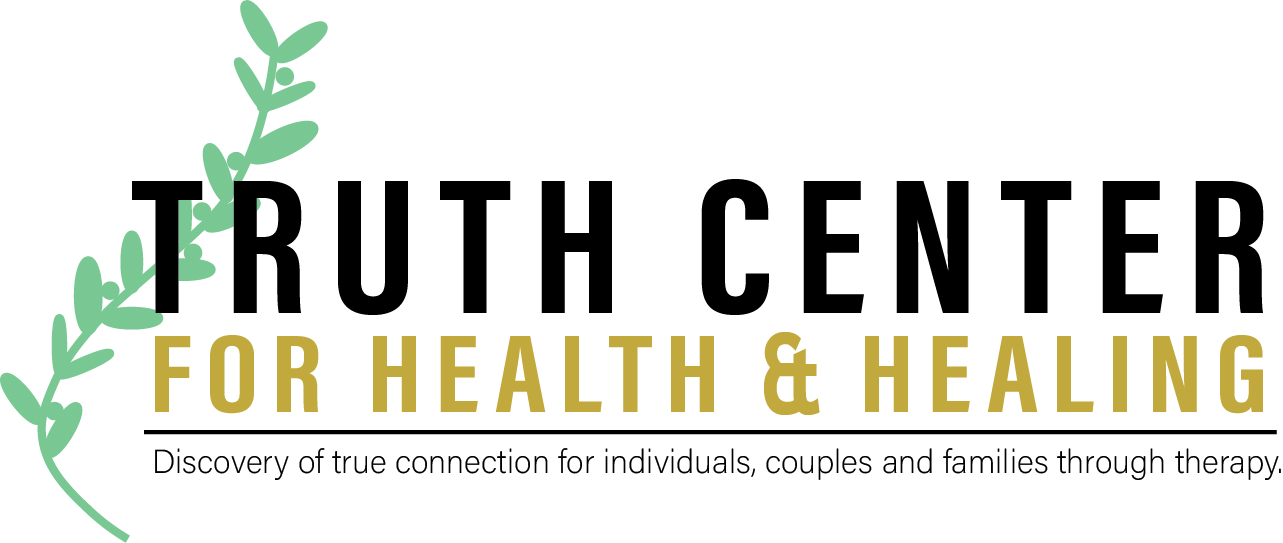Remember when you were eight years old and someone asked what you wanted to be when you grew up, and you answered with complete confidence? Maybe you said astronaut, veterinarian, or professional ice cream taster without a hint of doubt in your voice. Fast forward to your twenties, and suddenly that same question feels like being asked to solve calculus while blindfolded and spinning in circles. What happened to that unwavering certainty, and more importantly, how do you find your way back to feeling sure about anything when every path seems to lead to more questions than answers?
If you’re reading this while sitting in your childhood bedroom at 2 AM, scrolling through LinkedIn posts of people your age who seem to have it all figured out, or if you’ve changed your major three times and still feel like you’re playing career roulette, you’re experiencing what psychologists call a quarter-life crisis. And here’s the truth nobody talks about: it’s not a sign that something is wrong with you. It’s actually a sign that something is very right. It means you’re growing, questioning, and refusing to settle for a life that doesn’t fit who you’re becoming.
But knowing it’s normal doesn’t make it feel any less overwhelming when you’re living through it. That’s where therapy comes in, not as another judgment about what you should be doing with your life, but as your personal emotional GPS system, helping you navigate this confusing terrain without losing yourself in the process.
What Exactly Is This Quarter-Life Crisis Thing?
The quarter-life crisis typically hits between ages 18 and 30, though it can show up earlier or later depending on your life circumstances. Unlike what social media might have you believe, it’s not just about not knowing what career you want. It’s a deep, existential questioning period that touches every area of your life.
Common signs you might be experiencing a quarter-life crisis include:
- Constantly second-guessing major life decisions you’ve already made
- Feeling envious of friends who seem to have their lives figured out
- Experiencing analysis paralysis when faced with important choices
- Wondering if you’re living authentically or just meeting others’ expectations
- Feeling overwhelmed by too many possibilities or trapped by current commitments
- Questioning everything from your career path to your relationships to your living situation
Everything that once felt certain suddenly feels questionable. Your friends from high school seem to be on completely different paths, your family keeps asking about your five-year plan when you can barely figure out what you want for lunch, and social media shows you a highlight reel of everyone else’s seemingly perfect life choices.
This period often brings up what therapists call “existential anxiety” – the deep, sometimes overwhelming worry about meaning, purpose, and authenticity. You’re not just asking “What do I want to do?” but “Who am I?” and “What kind of life do I want to build?” These are huge questions that deserve more than a quick Google search or a pros-and-cons list scribbled on a napkin.
The quarter-life crisis can manifest differently for everyone. Some people feel paralyzed by too many options, while others feel trapped by the choices they’ve already made. Some experience it as depression or anxiety, while others describe it as a constant restless feeling that nothing quite fits right. What connects all these experiences is the sense that you’re supposed to have answers you simply don’t have yet.
Why Your Brain Feels Like It’s Short-Circuiting
There’s actually solid neuroscience behind why your twenties feel so confusing. Your brain doesn’t finish developing until around age 25, particularly the prefrontal cortex, which handles decision-making, impulse control, and long-term planning. So while society expects you to make major life decisions about career, relationships, and finances, your brain is literally still under construction.
Modern pressures that make quarter-life crises more intense:
- Financial stress: Student loan debt, impossible housing costs, entry-level jobs requiring years of experience
- Choice overload: Infinite career possibilities without clear pathways or mentorship
- Social media comparison: 24/7 exposure to everyone else’s highlight reel
- Economic uncertainty: Gig economy instability, climate change concerns, political upheaval
- Relationship complexity: Dating apps, changing marriage norms, delayed life milestones
- Family expectations: Pressure to succeed while also establishing independence
You’re also dealing with practical stressors that previous generations didn’t face at the same scale. It’s not just about figuring out who you want to be; it’s about figuring out how to survive and thrive in a world that feels increasingly complex and uncertain.
This is where therapy for 20s anxiety becomes invaluable. Instead of trying to figure everything out on your own while your brain is still developing and the world is changing rapidly around you, you get a professional thinking partner who can help you make sense of it all.
How Therapy Functions as Your Emotional Navigation System
Think of your therapist as the most advanced GPS system you’ve ever used, but instead of finding the fastest route to a destination, they’re helping you discover where you actually want to go and the most authentic path to get there. Just like a GPS doesn’t judge you for missing a turn or needing to recalculate, a good therapist doesn’t judge you for feeling lost or changing directions.
When you’re dealing with quarter life crisis therapy, your therapist serves several navigation functions simultaneously. They help you identify your current emotional and life coordinates, explore possible destinations that align with your values and authentic self, and develop strategies for moving forward even when you can’t see the complete route ahead.
How your therapeutic GPS system works:
- Current location assessment: Understanding where you are emotionally and what’s driving your uncertainty
- Destination exploration: Identifying your authentic values and desires beneath external pressures
- Route planning: Developing concrete steps toward your goals while staying flexible
- Recalculation support: Helping you adjust course when plans change or obstacles arise
- Traffic updates: Processing setbacks, disappointments, and unexpected challenges
- Rest stop guidance: Learning when to pause, reflect, and recharge during your journey
Unlike advice from well-meaning friends or family who might project their own dreams and fears onto your situation, a therapist offers objective guidance. They’re trained to help you separate your authentic desires from external expectations, family pressures, and societal shoulds. This is particularly crucial during your twenties when you’re still differentiating yourself from your family of origin and figuring out which values are truly yours.
Your therapist also helps you recognize that being lost doesn’t mean you’re broken. In young adult counseling, one of the most healing realizations is that uncertainty is not a character flaw but a natural part of growth. Your therapist can help you develop tolerance for ambiguity and learn to make decisions with incomplete information, skills that will serve you throughout life.
The Power of Having a Professional Thinking Partner
One of the most valuable aspects of therapy during this life stage is having someone whose job it is to think with you without having an agenda for your life. Your parents want you to be successful and safe, which might make them push you toward stable careers even if they don’t excite you. Your friends are dealing with their own quarter-life struggles and might not have the emotional bandwidth to fully support yours. Your romantic partner, if you have one, is likely going through similar uncertainties and may be too close to the situation to offer perspective.
Your therapist, however, is professionally trained to sit with uncertainty, ask the right questions, and help you explore possibilities without rushing toward quick answers. They understand that the goal isn’t to eliminate the discomfort of not knowing but to help you navigate through it more skillfully. Individual therapy near Philadelphia and elsewhere isn’t rigid either, it’s there to be a guide that serves you, not a blanket, impersonal process.
In therapy, you can explore ideas that feel too vulnerable or crazy to share with others. Maybe you’re wondering about life choices, if you want kids, if you chose the wrong career, or if you need to end a long-term relationship. These thoughts can feel earth-shattering when they’re bouncing around in your head alone, but in therapy, they become workable material for exploration rather than sources of panic.
Your therapist can also help you recognize patterns in your thinking that might be keeping you stuck. Maybe you tend to catastrophize about the future, or perhaps you’re so afraid of making the wrong choice that you end up making no choice at all. These patterns often develop as coping mechanisms during childhood or adolescence but can become obstacles during the identity formation process of early adulthood.
Common Quarter-Life Crisis Challenges and How Therapy Helps
| Challenge | How It Shows Up | How Therapy Helps | Therapeutic Approach |
| Career Confusion | “I don’t know what I want to do with my life” | Explore values, interests, and strengths without pressure to decide immediately | Values clarification, career exploration exercises |
| Relationship Questions | Wondering if current relationships are right long-term | Process feelings without external pressure to stay or leave | Attachment exploration, communication skills |
| Identity Uncertainty | “I don’t know who I really am” | Create safe space for identity exploration and self-discovery | Person-centered therapy, identity work |
| Comparison Trap | Constantly measuring against others’ achievements | Develop authentic self-worth independent of external validation | Cognitive behavioral techniques, mindfulness |
| Decision Paralysis | Feeling overwhelmed by too many choices | Build decision-making skills and tolerance for uncertainty | Acceptance and commitment therapy, values work |
Breaking Free from the Comparison Trap
Social media has turned comparison into a 24/7 activity, and your twenties are when this hits hardest. Everyone seems to be getting promoted, traveling the world, finding their soulmate, or launching successful side hustles while you’re still figuring out what you want for breakfast. This constant comparison can make your own perfectly normal journey feel like failure.
In therapy, you learn to recognize comparison as a thief of joy and authenticity. Your therapist helps you understand that social media shows highlight reels, not reality. That friend who seems to have the perfect job might be crying in the bathroom at work every day. The couple posting romantic vacation photos might be fighting about money constantly. Everyone is struggling with something, but struggles don’t make good Instagram content.
Strategies for breaking free from comparison culture:
- Reality check reminders: Understanding that social media is curated performance, not authentic life
- Values clarification: Developing your own definition of success based on personal values
- Internal scorecard: Learning to measure progress against your own goals, not others’ achievements
- Gratitude practices: Focusing on what’s working in your life rather than what’s missing
- Social media boundaries: Curating feeds and taking breaks that support rather than undermine wellbeing
- Authentic connection: Building real relationships that go beyond surface-level comparisons
More importantly, therapy helps you develop an internal compass that’s based on your own values and desires rather than external metrics of success. You learn to ask “Does this align with who I am and what I want?” instead of “Will this impress other people?”
Your therapist can also help you curate your media consumption in ways that support rather than undermine your mental health. This might mean unfollowing accounts that consistently make you feel bad about yourself, setting boundaries around news consumption, or taking regular social media breaks to reconnect with your own life rather than everyone else’s curated version.
The Art of Making Decisions with Incomplete Information
One of the most paralyzing aspects of the quarter-life crisis is the feeling that you need to make perfect decisions about imperfect information. You’re choosing a career path without knowing exactly what the job market will look like in ten years, considering marriage without knowing how you’ll both change and grow, or deciding where to live without knowing what opportunities might emerge elsewhere.
Therapy teaches you that perfect decisions don’t exist, but good enough decisions made with intention and self-awareness can lead to fulfilling lives. Your therapist helps you develop decision-making frameworks that honor both logic and intuition, both practical considerations and authentic desires.
Key principles for confident decision-making:
- Values-based choices: Using your core values as the primary decision filter
- Reversibility assessment: Distinguishing between decisions you can change and ones that are permanent
- Good enough principle: Accepting that 80% certainty is often sufficient to move forward
- Learning mindset: Viewing decisions as experiments that provide valuable information
- Future self consideration: Imagining how different choices align with who you want to become
- Risk tolerance evaluation: Understanding your personal comfort level with uncertainty
This process often involves learning to distinguish between reversible and irreversible decisions. Choosing an apartment, a job, or even a graduate program? These are largely reversible decisions that you can learn and grow from, even if they don’t work out perfectly. Having children or getting married? These deserve more careful consideration because they’re harder to undo, but even these decisions can be approached with confidence when you’ve done the internal work to understand your values and priorities.
Your therapist also helps you recognize that making no decision is itself a decision. Staying stuck in analysis paralysis often serves unconscious purposes like avoiding responsibility, maintaining the fantasy that perfect options exist, or staying in a familiar state of uncertainty rather than risking the discomfort of commitment.
Understanding Your Family’s Influence on Your Crisis
Your family of origin plays a huge role in how you experience your quarter-life crisis, though this influence is often unconscious. Maybe you’re rebelling against parents who pushed academic achievement by considering dropping out of graduate school, or perhaps you’re afraid to pursue creative careers because your family equates art with financial instability.
In therapy, you can explore these family dynamics without disloyalty or blame. Understanding how your family’s dreams, fears, and expectations shape your own helps you separate their voices from your authentic desires. This doesn’t mean rejecting everything your family taught you, but rather consciously choosing which values and beliefs truly serve you as an adult.
Your therapist can help you navigate the tricky balance of honoring your family relationships while establishing your independence. This might involve setting boundaries around unsolicited advice, learning to communicate your decisions confidently without seeking approval, or processing feelings of guilt that arise when your choices differ from family expectations.
For many young adults, therapy also provides a space to process childhood experiences that affect current decision-making. Maybe perfectionism developed as a way to earn love and approval, or perhaps fear of failure stems from criticism received during formative years. Understanding these patterns helps you make choices from a place of self-love rather than self-protection.
When Quarter-Life Crisis Becomes Clinical Anxiety or Depression
While quarter-life questioning is normal, sometimes the distress becomes severe enough to interfere significantly with daily functioning. When uncertainty turns into debilitating anxiety, when sadness about life direction becomes persistent depression, or when decision paralysis prevents you from meeting basic responsibilities, professional mental health support becomes essential rather than optional.
Warning signs that indicate you might benefit from immediate professional support:
- Sleep disruption: Persistent insomnia, frequent nightmares, or sleeping much more than usual
- Appetite changes: Significant weight loss or gain, loss of interest in food, or emotional eating
- Concentration problems: Inability to focus at work, school, or on previously enjoyable activities
- Social withdrawal: Isolating from friends and family, canceling plans consistently
- Physical symptoms: Headaches, stomach problems, or other unexplained physical issues
- Substance use: Increasing alcohol or drug use to cope with feelings
- Hopelessness: Persistent feelings that things will never get better or thoughts of self-harm
Therapy for 20s anxiety often addresses both the situational stressors of early adulthood and any underlying mental health conditions that make navigating this period more challenging.
Signs that your quarter-life crisis might need professional attention include persistent sleep problems, loss of interest in activities you previously enjoyed, significant changes in appetite, difficulty concentrating at work or school, or thoughts of self-harm. These symptoms don’t mean you’re weak or abnormal; they mean your brain needs additional support to process the stress you’re experiencing.
Even if your distress hasn’t reached clinical levels, therapy can prevent minor struggles from becoming major mental health crises. Learning healthy coping strategies, building emotional resilience, and developing strong therapeutic relationships during your twenties creates a foundation for mental wellness throughout your adult life.
Building Your Authentic Life Vision
Rather than trying to plan out every detail of the next ten years, therapy helps you develop what psychologists call “flexible planning.” This involves creating a vision for your life that’s specific enough to guide decision-making but flexible enough to accommodate growth, change, and unexpected opportunities.
Your therapist guides you through exercises that help you identify your core values, imagine your ideal lifestyle, and consider what success means to you personally rather than culturally. This process often reveals surprising insights about what you actually want versus what you think you should want.
Components of authentic life vision development:
- Values identification: Discovering what truly matters to you beneath societal expectations
- Lifestyle exploration: Imagining your ideal daily life, work environment, and relationships
- Success redefinition: Creating personal metrics for fulfillment beyond external achievements
- Priority clarification: Understanding what you’re willing to sacrifice and what’s non-negotiable
- Timeline flexibility: Building goals with room for growth, change, and unexpected opportunities
- Integration planning: Aligning different life areas (work, relationships, health, creativity) with your vision
Building an authentic life vision also involves grieving the lives you won’t live. In a world of infinite possibilities, choosing one path means saying no to countless others. This can feel like loss, and therapy provides space to acknowledge these feelings without letting them paralyze your forward movement.
Your authentic life vision becomes a North Star that helps you evaluate opportunities and make decisions even when you can’t see the complete path ahead. Instead of asking “Is this the perfect choice?” you can ask “Does this move me toward or away from the life I want to build?”
Creating Your Support System Beyond Therapy
While your therapist serves as your professional guide, building a broader support system is crucial for navigating your twenties successfully. This might involve deepening friendships with people who share your values, providing honest grief counseling in Delaware County, PA, and the surrounding areas, or connecting with communities that support your authentic self-expression.
Therapy can help you evaluate your current relationships and identify which ones truly support your growth versus those that keep you stuck in old patterns. Sometimes this means having difficult conversations with friends or family members about how you’re changing, and sometimes it means gradually investing less energy in relationships that no longer serve you.
Your therapist can also help you develop the skills to build new, healthier relationships. This includes learning to communicate your needs clearly, setting appropriate boundaries, and recognizing red flags in both friendships and romantic relationships. These skills become particularly important as you move through your twenties and the stakes of relationship choices feel higher.
Moving Forward with Confidence and Curiosity
The goal of quarter-life crisis therapy isn’t to eliminate uncertainty or provide you with a foolproof life plan. Instead, it’s to help you develop the internal resources to navigate uncertainty with confidence, make decisions that align with your authentic self, and stay curious about your own growth process rather than anxious about the unknown.
Your therapist stands with you in the uncertainty, not to rush you toward quick answers but to help you trust the process of becoming who you’re meant to be. And sometimes, that’s the most valuable navigation system of all: someone who believes in your ability to find your way, even when you can’t see the path clearly yet.
Remember, seeking therapy for your quarter-life crisis isn’t an admission of failure or weakness. It’s an investment in yourself and your future, a way of saying that your life and happiness matter enough to get professional support during this crucial developmental period. Reach out to the Truth Center for Health and Healing today. Your future self will thank you for having the courage to ask for help when you needed it most.





